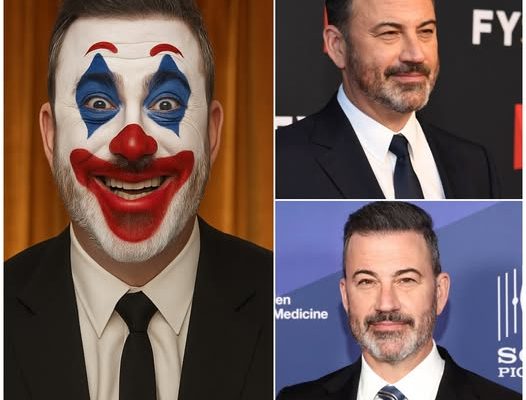On the red carpet of the Creative Arts Emmy Awards, amidst the usual flurry of questions about fashion and upcoming projects, a reporter posed a question to Jimmy Kimmel that was heavy with the weight of our current political moment: What does it feel like to be defending democracy? The late-night host’s response was characteristically casual, suggesting he was simply enjoying “giving this guy a little poke.” But the exchange itself was a perfect snapshot of the complex, fraught, and deeply polarizing role of the modern late-night comedian.
For a significant portion of the country and the media that covers them, hosts like Kimmel and the recently departed Stephen Colbert are seen as more than just entertainers. They are viewed as front-line soldiers in a cultural war, modern-day court jesters speaking truth to power, using their nightly monologues as a shield for democracy itself.
But for an equally significant, and increasingly vocal, part of the country, they are seen as something else entirely: high-profile political partisans who have abandoned the art of satire in favor of thinly veiled activism. This growing divide has plunged the entire genre of late-night television into a crisis of identity and relevance.
The myth of the comedian as a brave truth-teller is a powerful one in American culture. From the gentle, unifying ribbing of Johnny Carson to the more pointed, media-savvy critiques of Jon Stewart, the late-night desk has long been seen as a place where the powerful could be held to account with a punchline. In the hyper-partisan Trump era, this role was amplified. The media narrative often framed these hosts as essential voices of the resistance, their nightly jokes serving as a moral and factual check on a chaotic administration.
:max_bytes(150000):strip_icc()/Jimmy-Kimmel-052125-2-d39e127240d843dbaceeff9bf3ffd15c.jpg)
However, critics argue that this narrative of brave, objective truth-telling is a “false meme,” one that conveniently ignores the hosts’ own political biases and selective outrage. They point to a perceived double standard. For instance, when a rodeo clown was given a lifetime ban from the Missouri State Fair for wearing a mask of President Barack Obama, there was little to no outcry from the late-night establishment in defense of his free speech. Yet, the cancellation of Stephen Colbert’s show was immediately, and without evidence, framed by some as a result of political pressure from President Trump, rather than a straightforward business decision by a network losing a reported $40 million a year on the program.
Furthermore, critics argue that the idea of a widespread campaign to censor these comedians is demonstrably false. Paramount, the same company that ended Colbert’s show, simultaneously shelled out a massive $1.5 billion deal to the creators of “South Park,” a show that has relentlessly skewered figures on all sides of the political spectrum, including Trump, with no apparent repercussions.
This leads to the core of the conundrum: have these hosts ceased to be satirists of all power and instead become defenders of their side’s power? Kimmel’s close relationship with the Democratic party is often cited as a prime example. He hosted a high-profile fundraiser for President Joe Biden and has been accused of actively dismissing or downplaying concerns about the former president’s fitness for office, a stark contrast to his relentless focus on the perceived flaws of his political opponents. For many, this isn’t defending democracy; it’s running defense for a political team.

The consequences of this deep-seated partisanship are now becoming clear in the one metric that truly matters in television: the ratings. While Kimmel remains a major star, his show routinely comes in third in the late-night race. The ratings powerhouse in the genre is now often Fox News’ “Gutfeld!”, a program that offers a diametrically opposed political viewpoint. This isn’t just a programming anomaly; it’s a market correction. It is clear evidence that a large portion of the country feels alienated and unrepresented by the dominant liberal ethos of mainstream late-night and is actively seeking out voices that reflect their own.
By choosing a side so definitively, the modern late-night host has lost the ability to be the unifying cultural force that a figure like Johnny Carson once was. The monologue is no longer a shared national experience, but a tailored message for a specific political demographic. The joke is no longer one the whole country feels in on.
In this light, Kimmel’s red carpet comment may have been the most honest assessment of all. Perhaps the grand narrative of “defending democracy” is a convenient myth. The reality may be that these are talented performers who enjoy “giving a poke” to their political adversaries and have found a large, appreciative audience for that specific brand of entertainment. The problem is, they may have traded their role as the nation’s court jester for that of a courtier to a king of their own choosing.



